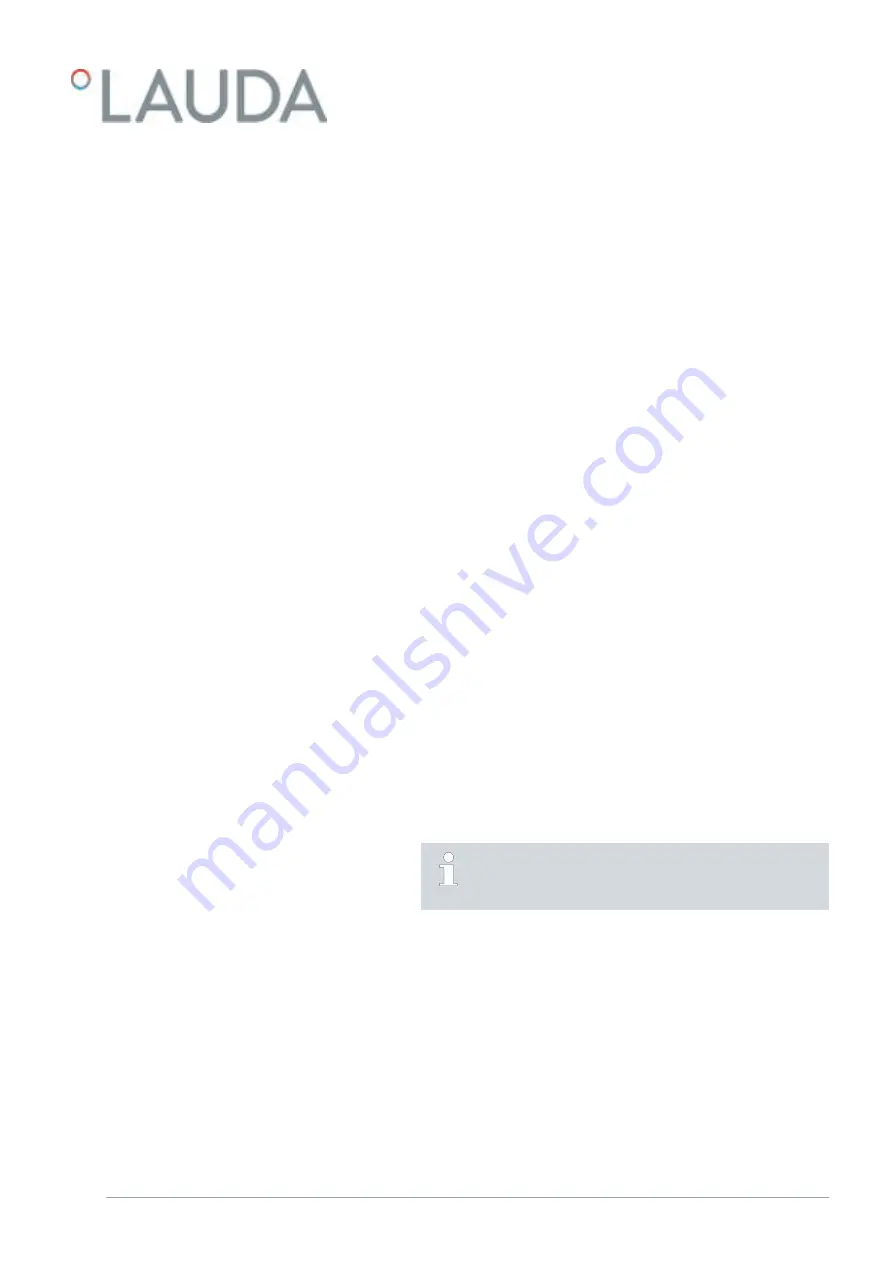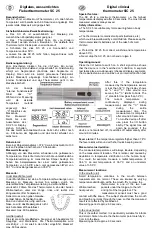
7.
After draining, close the drain tap or taps.
After the heat transfer liquid has been drained, residues remain in the device.
These residues must be removed to avoid deposits in the device during
storage.
If new heat transfer liquid is added and the device is operated above the
thermal load limit for the old heat transfer liquid, deposits can form, espe-
cially on the heaters. These coatings reduce the performance of the device
and/or reduce the service life of the device.
Protective equipment:
n
Safety glasses
n
Protective gloves
n
Protective work clothing
If necessary, clean or flush out the device (with new heat transfer liquid, for
example).
If water with a cleaning agent (grease solvent) is used as cleaning liquid, make
sure that the device is only operated in fill mode (cooling unit is therefore
switched off). Otherwise, there is a risk that the device may freeze internally
and become damaged as a result.
1.
Connect a hose to the pump connectors (short circuit between the
outflow connector and the return connector).
2.
Fill the device with a suitable cleaning fluid. During this time, operate
the device in fill mode.
3.
Drain the device via the drain connector.
4.
Check the cleaning fluid for dirt and the remains of old heat transfer
liquid.
If you detect dirt in the cleaning fluid, repeat points 2 to 3.
Otherwise continue with point 5.
5.
Remove hose from the pump connector.
6.
Dry the hydraulic circuit in the device with compressed air.
To do this, carefully allow the compressed air to flow into the device
alternately via the outflow and return connectors.
If the device has been cleaned with a highly oil-soluble liquid
(e.g. ethanol), do not leave it dry for longer periods (1 day) or
transport it, as the pump requires a minimum lubrication.
Internal cleaning
V6
Integral Process Thermostats and High-Temperature Thermostats
155 / 198
















































